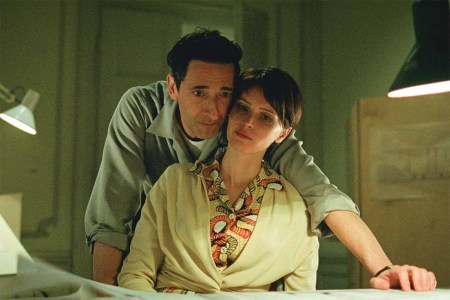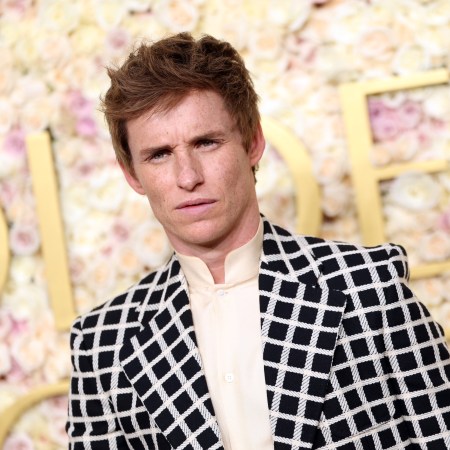There were certainly more eloquent speeches at Sunday’s Screen Actors Guild Awards — Jane Fonda’s stirring call to action as she accepted her Lifetime Achievement Award or Kieran Culkin’s off-the-cuff jokes about actors’ self-importance, delivered with the ease of a stand-up comedian doing a road-tested tight five — but it was the speech Timothée Chalamet gave while making history as the youngest person to ever win Best Actor at the SAG Awards that sparked the most online chatter.
“I know the classiest thing would be to downplay the effort that went into this role and how much this means to me, but the truth is, this was five and a half years of my life,” the 29-year-old Chalamet said. “I poured everything I had into playing this incomparable artist, Mr. Bob Dylan, a true American hero. And it was the honor of a lifetime playing him.”
“I know we’re in a subjective business, but the truth is, I’m really in pursuit of greatness,” he continued. “I know people don’t usually talk like that, but I want to be one of the greats. I’m inspired by the greats. I’m inspired by the greats here tonight. I’m as inspired by Daniel Day-Lewis, Marlon Brando and Viola Davis as I am by Michael Jordan and Michael Phelps. And I want to be up there.”
The speech ruffled a few feathers — The Daily Beast took issue with the Jordan comparison and called it “thirsty” — but for the most part, the response was positive, and rightfully so. It was refreshing to see such an honest display of naked ambition at an awards show instead of the “you like me, you really like me!” faux humility we see so often at these events.
Chalamet did look legitimately surprised to hear his name called, but that’s likely just because this is the first time he’s won a major award. (He poked fun at this a few weeks ago during his SNL monologue, saying, “It’s an enormous honor going to these award shows. It’s such a great experience, but I just keep losing. And each time it gets harder to pretend it doesn’t sting” before introducing a supercut of him looking disappointed at various ceremonies.) It’s obvious that winning an award means a lot to him, and that he feels deserving of the recognition. When did that become a bad thing?
Should an AI-Enhanced Performance Win an Oscar?
“The Brutalist” and “Emilia Pérez” have sparked controversyHe didn’t credit the win to God or Jesus or feign any kind of shock that anyone would vote for little ol’ Timmy. He didn’t deliver any humble platitudes about how it’s such an honor to be included in the same sentence as his fellow nominees or how the real prize was the friends he made along the way. Instead, he said what most actors in his position really feel but are too afraid to say out loud: that awards mean a lot to him, he deserved this one and he wants to continue to win more in the future.
And why shouldn’t he? What’s wrong with striving for greatness? (Haven’t we all, at one point or another, fantasized about winning an Oscar or a gold medal, even if we’re not actors or athletes?) For some reason, that mentality is celebrated in sports but frowned upon in creative fields. Chalamet’s mention of Jordan and Phelps is important; when Jordan was famously an asshole to his teammates, the understanding was that he was operating on a higher wavelength than everyone else and pushing them to meet him on his level and be great. When Phelps mean-mugged a South African competitor who dared to enter his personal space at the Olympics, we all knew it was because the greatest swimmer of all time was locked in and ready to add another medal to his collection. When athletes are confident and determined, we say it’s because they’ve got the heart of a champion. Couldn’t the same be said about Chalamet, who has starred in seven Best Picture nominees all before he’s even turned 30?
Other Best Actor winners might not say it out loud, but anyone who’s able to rise to the top of their field and produce great work has to feel deep down that they’re capable of doing so. Daniel Day-Lewis would never have signed on to portray Abraham Lincoln if he didn’t think he could do the part justice; the same goes for Chalamet taking on the nearly impossible task of capturing an iconic personality like Dylan. (Not to mention doing his own singing and playing!)
Being proud of your work and the blood, sweat and tears you put into it is not the same thing as gloating, and it’s worth clarifying that Chalamet didn’t say he considers himself to be on par with Brando or Jordan or Phelps — yet. But the fact that he was willing to announce that he wants “to be up there” with them one day already sets him apart from the rest.
This article appeared in an InsideHook newsletter. Sign up for free to get more on travel, wellness, style, drinking, and culture.




















